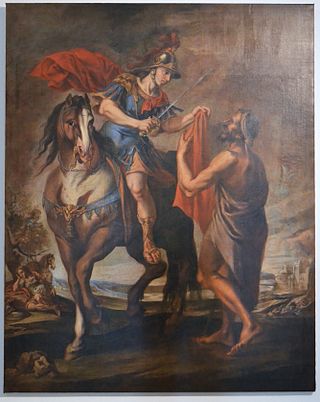Related Research Articles

Clark is an English language surname, ultimately derived from the Latin with historical links to England, Scotland, and Ireland clericus meaning "scribe", "secretary" or a scholar within a religious order, referring to someone who was educated. Clark evolved from "clerk". First records of the name are found in 12th-century England. The name has many variants.
White is a surname either of English or of Scottish and Irish origin, the latter being an anglicisation of the Scottish Gaelic MacGillebhàin, "Son of the fair gillie" and the Irish "Mac Faoitigh" or "de Faoite". It is the seventeenth most common surname in England. In the 1990 United States Census, "White" ranked fourteenth among all reported surnames in frequency, accounting for 0.28% of the population. By 2000, White had fallen to position 20 in the United States and 22nd position by 2014
Chris is a short form of various names including Christopher, Christian, Christina, Christine, and Christos. Chris is also used as a name in its own right, however it is not as common.
Jamie is a unisex name. Traditionally a masculine name, it can be diminutive form of James or, more rarely, other names and is of Scottish Gaelic origin. It is also given as a name in its own right. Since the late 20th century it has been used as an occasional feminine name particularly in the United States.
Gray is a surname of English and Scottish origins.
Banks is an English surname. Notable people and fictional characters with the surname include:
Scott is a surname of Scottish origin. It is first attributed to Uchtredus filius Scoti who is mentioned in the charter recording the foundation of Holyrood Abbey and Selkirk in 1120, the border Riding clans who settled Peeblesshire in the 10th century and the family lineage of the Duke of Buccleuch.
Hunter is a Scottish surname. Notable people with the surname include:
The surname Young has several origins.
Andy, also spelled Andi, Andie or Andee, is predominantly a diminutive version of the male given name Andrew, and variants of it such as Andreas and Andrei. The form of the variation is based on the Scottish "-ie" diminutive ending. Andrew is derived from the Greek name Andreas, meaning "manlike" or "brave". Andy is also occasionally used as a diminutive for the female given name Andrea.
King is an English surname. It is also an Anglicized form of the German surname Küng, which in many German dialects is pronounced like king. This originally German form is widespread among American Mennonites and Amish.

Martin may either be a given name or surname. In Scotland, Martin or McMartin is a common surname of Scottish Gaelic origin. Martin is, however, more common as a masculine given name in many languages and cultures. It comes from the Latin name Martinus, which is a late derived form of the name of the Roman god Mars, protective godhead of the Latins and, therefore, god of war. The meaning is usually rendered in reference to the god as "of Mars", or "of war/warlike" ("martial"). Alternatively, it may also be derived from the Proto-Germanic elements "mar", meaning famous and "tank", meaning thought, counsel.
Stewart is a Scottish surname, also used as a given name. It is possibly derived from the old English word "stigweard", a compound of "stig" meaning household, and "weard", a guardian (ward), or from the Gaelic Stiùbhart meaning steward. Alternative spellings are Stuart, Steward and Steuart. The surname Stewart has large concentrations in the United States, United Kingdom, Canada, Jamaica, New Zealand, Australia and elsewhere that has large Scottish or Ulster Scots diaspora.
Bennett is an English surname and, less commonly, a given name. Alternative spellings include Bennet, Benett and Benet. It is common throughout the British Isles, in England, Scotland and also in Ireland.
Alex is a given name. It can refer to a shortened version of Alexander, Alexandra, Alexis.
Dean is an English masculine given name and middle name with several origins:
Leslie is a surname and given name, derived from the name of Clan Leslie. The name may also be spelled Lesley. The name derives from a placename in Aberdeenshire, perhaps an anglicisation of an originally Gaelic leas celyn "holly-garden". Leslie is also frequently used as an anglicization of the male name Ladislaus, or its variant László. In this context, the name is derived from Slavic elements, with 'vladeti' meaning 'rule' and 'slava' meaning 'glory'. In the United Kingdom, the name is spelled Leslie when given to boys, while for girls it is usually rendered as Lesley.
Norris is an English surname. In some cases it is derived from the Middle English norreis, noreis, norais; and the Anglo-Norman French noreis. In such cases the surname derived from elements meaning "northerner", and referred to people from somewhere to the north, or more generally northern England and Scotland or Northern Europe. In other cases, the surname is derived from the Middle English personal name Norreis, which is in turn derived from norreis. In other cases the surname is derived from the Middle English norice, nurice; and the Old French norrice, nurrice. In such cases, the surname is derived from elements meaning "nurse", "foster parent".
This surname has two distinct and separate origins: